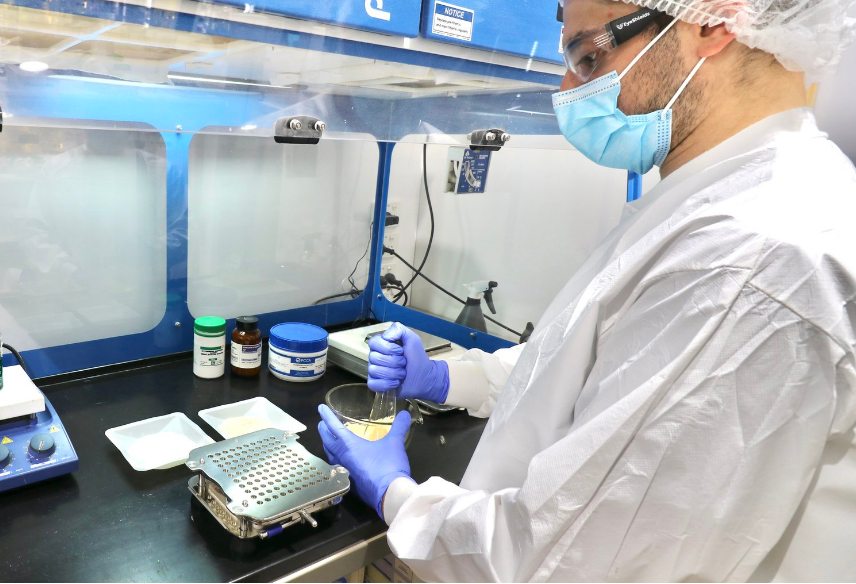How Compound Medication Pharmacy Can Revolutionise Your Treatment?

In the realm of healthcare, personalised treatment plans tailored to individual patients have become increasingly crucial. One avenue that is gaining traction in this pursuit is compound medication pharmacies. These pharmacies offer customised medications formulated to meet the unique needs of patients. This article explores how compound medication pharmacy is revolutionising treatment plans, providing a deeper understanding of their benefits and implications.
Understanding Compound Medication Pharmacies:
Compound medication pharmacies specialise in creating customised medications by combining different ingredients in specific dosages to meet individual patient needs. Unlike mass-produced medications, compound medications are tailor-made for each patient, considering factors such as allergies, sensitivities, and specific medical requirements. This personalised approach allows for greater flexibility in treatment.
Revolutionising Treatment Plans:
- Personalised Formulations:
Compound medication pharmacies enable healthcare providers to customise formulations according to each patient’s unique requirements. This personalised approach ensures that patients receive medications that are precisely tailored to their needs, increasing efficacy and reducing the risk of adverse effects. For individuals with allergies, sensitivities, or specific dosage requirements, compound medications offer viable solutions.
- Diverse Applications:
Compound medications find applications across various medical specialties, including dermatology, pain management, paediatrics, and geriatrics. Whether it’s creating customised topical creams, hormone replacement therapies, or paediatric formulations, compound medication pharmacies cater to diverse patient needs. By offering a wide range of formulations, these pharmacies empower healthcare providers to optimise treatment plans and improve patient outcomes.
- Enhanced Compliance:
One of the challenges in conventional medication regimens is poor patient compliance, often due to issues such as pill burden, taste preferences, or difficulty swallowing. Compound medication pharmacies address these compliance issues by offering alternative dosage forms such as transdermal gels, flavoured liquids, or sublingual tablets. By providing medications in patient-friendly formulations, compound pharmacies enhance medication adherence, leading to better treatment outcomes.
- Addressing Paediatric Needs:
Children often present unique challenges when it comes to medication administration. Commercially available paediatric patients due to issues such as dosing adjustments, palatability, or the presence of allergens. Compound medication pharmacies specialise in creating child-friendly formulations, such as flavoured suspensions or chewable tablets, making medication administration easier for parents and caregivers. This paediatric focus highlights the versatility of compound pharmacies in catering to diverse patient populations.
- Managing Chronic Pain:
Chronic pain management compounding requires a tailored approach that addresses individual pain profiles and preferences. Compound medication pharmacies play a crucial role in this aspect by formulating customised pain medications that target specific pain pathways. Whether it’s combining multiple analgesic agents or incorporating novel delivery systems, compound pharmacies offer solutions that go beyond conventional pain management strategies. This personalised approach to pain relief enhances patient comfort and quality of life, underscoring the transformative potential of compound medications in chronic pain management.
Challenges and Considerations:
While compound medication pharmacies offer numerous benefits, several challenges and considerations merit attention:
- Regulatory Compliance:
Compound pharmacies must adhere to strict regulatory standards to ensure the safety, efficacy, and quality of compounded medications. Compliance with regulations such as USP <795> and USP <797> is essential to maintain patient safety and trust.
- Insurance Coverage:
Insurance coverage for compound medications may vary, and patients may encounter challenges in obtaining reimbursement for these customised formulations. Healthcare providers and patients should work closely with insurers to navigate coverage options and reimbursement policies.
- Quality Assurance:
Ensuring the quality and consistency of compounded medications is paramount. Compound pharmacies must implement robust quality assurance measures to monitor the integrity of ingredients, the accuracy of formulations, and the sterility of products.
- Communication and Collaboration:
Effective communication and collaboration between healthcare providers and compound pharmacies are essential for optimising treatment outcomes. Clear communication of patient needs, preferences, and treatment goals facilitates the formulation of customised medications that align with the patient’s overall care plan.
Conclusion:
Compound medication pharmacies represent a paradigm shift in healthcare, offering personalised treatment solutions that address the unique needs of individual patients. By providing customised formulations, diverse applications, and enhanced compliance options, compound pharmacies revolutionise treatment plans across various medical specialties. While challenges such as regulatory compliance and insurance coverage exist, the transformative potential of compounding medications in improving patient outcomes cannot be overstated. Embracing the innovation and flexibility offered by compound pharmacies can lead to more effective, patient-centred healthcare delivery in the modern era.






